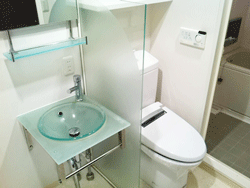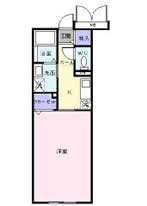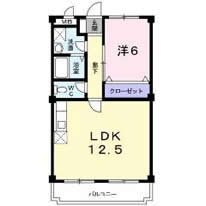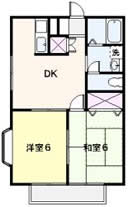|
 Renting an Apartment Renting an Apartment
|
 |
When you are looking for a room for rent in TSUKUBA, first, we recommend to consult the responsible
researcher for your stay or KEK Users Office (visitorssupport@kek.jp ).
In TSUKUBA, there are two kinds of leasehold. One is guesthouses, Takezono house and Ninomiya
house, operated by Japanese International Science and Technology Exchange Center, and the other is
privately owned rooms. |
In Takezono house and Ninomiya house, rent fee of rooms;
for one-person (34㎡・36㎡) is 63,000yen,
for two-people(63㎡), 86,000yen,
for the familys (93㎡), 106,000yen.
All of these rooms are furnished. Reservation for staying more than 21 days, accepted six month before
the stay. However these rooms are located at center of TSUKUBA, you will need to take a bus or cars for
transportation to KEK. Real estate agents have some leasehold properties with furniture near KEK, which
you could commute by bicycle, but the rent fee is from 35,000yen and they are 1Ks only.
There are a lot of Real estate agents in Tsukuba, but they have only Japanese homepages and most staff
members can communicate only in Japanese. But we are glad to help you.
 Please visit the Takezono house and Ninomiya house website to see more information: Please visit the Takezono house and Ninomiya house website to see more information:
http://www.jsthouse.com/information/index_e.html 
| Terms used when borrowing |
 Real estate agent ”Fudosan-ya” Real estate agent ”Fudosan-ya”
Shops that buys/sell or intermediate apartments, houses, and leaseholds.
 Rental fee ”Yachin” Rental fee ”Yachin”
Charge for renting the house and the apartment. They are usually charged monthly.
 Maintenance fee and common-area charge ”Kanri-hi” and “Kyo-eki-hi” Maintenance fee and common-area charge ”Kanri-hi” and “Kyo-eki-hi”
Monthly charge necessary for the management and cleaning etc. of places (stairs and passage, etc.)
commonly used by the residents.
 Security Deposit ”Shikikin” Security Deposit ”Shikikin”
Money deposited to the landlord (owner). When the tenant moves, it is used for unpaid rent or for
restoration of dirty or, destroyed equipement. The balance will be reimbursed.
 Key money ”Reikin” Key money ”Reikin”
Reward money traditionally paid to the landlord when contracting, and it will not be paid back.
This may not be necessary for some leaseholds.
 Agent commission ”Chukai Te-su-ryo” Agent commission ”Chukai Te-su-ryo”
It is a commission paid to the real estate agent who mediated the room search.
 Guarantor system ”Rentai ho-sho-nin” Guarantor system ”Rentai ho-sho-nin”
The guarantor is usually required to secure the responsibility of tenants to restore the unusual
damages of the house/leasehold. You can join a guarantor exemption program with some additional
payment.
| |
 |
In some real estate agents of Tsukuba, you can find properties which need not a guarantor, instead, by joining "Guarantor exemption plan" When you apply for "Guarantor exemption plan" you need the passport, the Residence card, and the incumbency certificate, etc.
Fee for this program is about 2.0-2.5% of the rent every month.
|
 Fee/ Deposit Fee/ Deposit
When you rent it a room/apartment, various fees/deposit such as monthly rent, security deposit fee
( It is not necessary occasionally), key money, fire insurance and the agent commission, are
necessary.
 Room size Room size
In Japan, the size of an apartment is expressed as the number of tatami-mats that make up the room,
for example, "6 jou", or in "tsubo" (Japanese unit measuring area equivalent to 2 jou). One tatami-
mat size "1 Jo" is equivalent to 1.62 square meters and one tsubo, 3.3 square meters.
 Interior of the room cannot be changed Interior of the room cannot be changed
In Japan, a tenant usually is not allowed to change/damage the interior of their apartments, including
nailing in the wall.
Changing the colors of the wall, partitions or doors needs permission of the landlord in advance.
Please keep this in mind that you may be charged for the changes without permission when you move
out of the apartment. You must not share the room without permission of the landlord.
 Noise Trouble Noise Trouble
One of the main problems people encounter is the NOISE from neighboring rooms.
In apartment buildings of the walls and floors are not thick enough to shut out the noise. If you can
hear the voice or sound from the room next to you or above you, you may be the noise source
against the neighbors.
Particularly after 10:00 pm, we advise that you keep your TV or radio on low volume, and also walk
quietly up and down the stairs.
On the same reason, please refrain from using your washing machine, vacuum cleaner, or other loud
electrical appliances late at night.
 The Culture of Taking your Shoes OFF The Culture of Taking your Shoes OFF
Traditionally, in Japan people do not wear shoes in the house. In Japan landlords and real estate
agents assume that the tenants will take their shoes off upon entering the apartment.
Even if you wear shoes in the house in your home country, please take your shoes off before entering
your apartment.
Also, when entering a Japanese style room ("Wa-shitsu" in Japanese), it is proper etiquette to remove
your slippers before entering.
 Prevent from getting kitchen walls Greasy. Prevent from getting kitchen walls Greasy.
Japanese food is mainly grilled, boiled, or mixed. Compared to other Asian countries, Japanese dishes
are fried in oil less frequently. So, kitchen walls spotted with grease and oil are not desirable. Dirty
kitchen may cause you an additional charge for cleaning/refurnishing when you move out.
If you use oil in, please be sure to clean diligently so that the ceilings and walls aren't left sticky with
grease. Also, please be sure to ventilate your kitchen well.
To protect against stickiness or spottered grease, you can buy special aluminum foil to cover the walls
and kitchen counters at any supermarkets.
Please take extra care to keep your kitchen area clean.
L means living room, D means dining room and K means kitchen.
" 1K" means, one room with kitchenette and "2DK" means 2 rooms with dining kitchen.
  
1K 1LDK 2DK
(玄関:Entrance, 浴室:bath 洗面:Lavatory, 物入:Closet, 廊下:Passage)
The Japanese-style room indicates the room with the tatami-mat, and the Western-style room indicates
the room of the wood-flooring, cushion floor or the carpetted. When you rent tatami- mat rooms, and
damaged them, you may be charged for the refurbishment. The cost is from 5000yen to 10,000yen for
a piece.
Please take care of using it.
| Necessary documents for the contract |
・Residence Card
・Income statement
・Guarantor approval book
・Bank account register and Bank sign
・Money
When you make a rental contract, total amount of money required would be 5 or 6 fold of monthly rent
(Rent of this month and next month, deposit, key money and agent commission, etc.)
Parking fee is not included in the rent. So you have to pay additonally.
| Electricity, Gas, and Water service |
Let's prepare for living, when the rental contract of room has been set.
 Electricity Electricity
A circuit breaker switch is located inside the Apartment. Fill your address, your name, and the date you
start using, on the postcard that is hanged down from the main breaker soon after you enter the room,
and send it to the office of Tokyo
Electric Power Company. Electricity becomes available immediately after you turn on the breaker.
 Gas Gas
You have to call the gas corporation and determine the date when you want to start using the gas, after
making the contract. The gasman comes on that day to open the valve. Most leasehold properties are not
equipped with gas-cookers.
So you need to buy it beforehand.
 Water Water
After you received the room key, call TSUKUBA city water service customer service (029-851-2811), and
tell them your apartment address, apartment name and the room number, telephone number.
It becomes available in 2 or 3 minute.
The customer service is open from 8:30 to 17:15 (Sunday, National holiday, and January 1st, 2nd, 3rd
are closed). They can communicate in Japanese only. |


